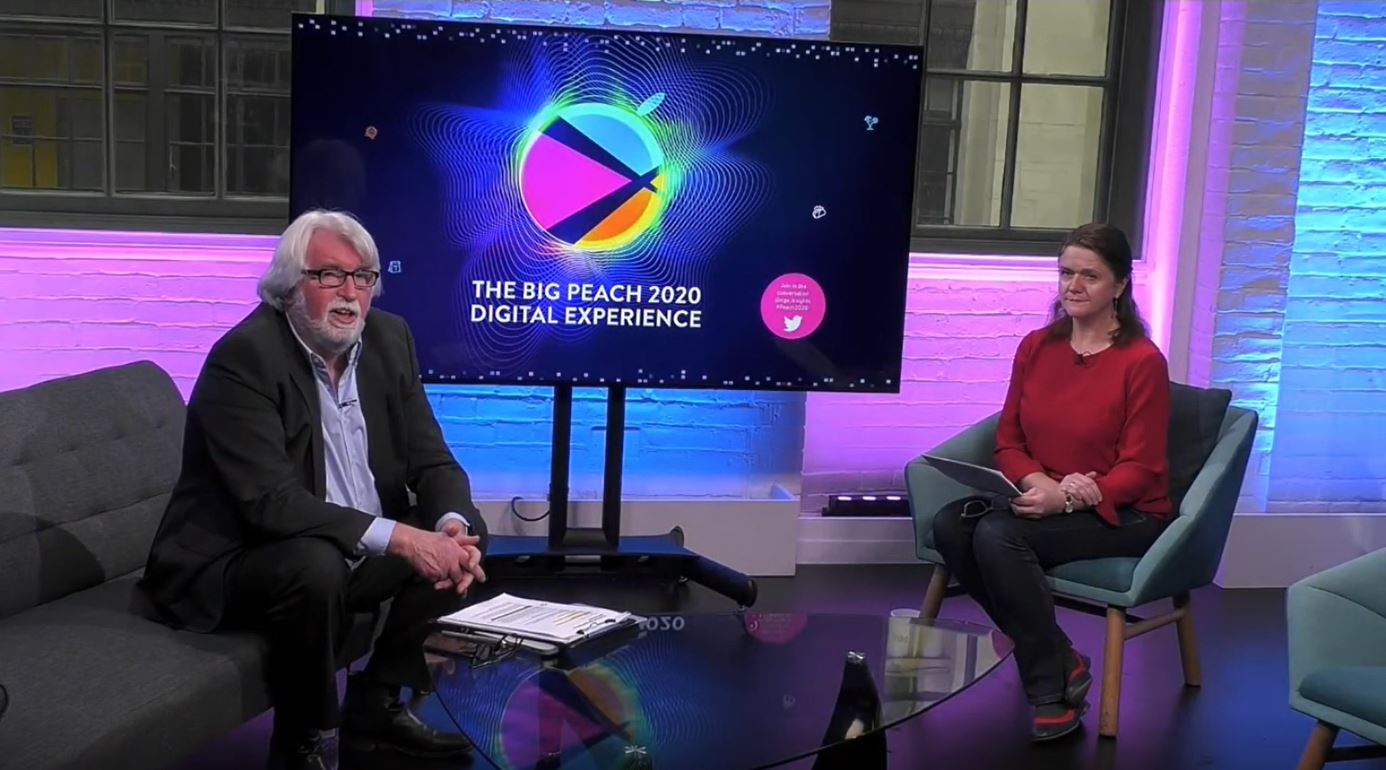CGA’s virtual conference on November 18 laid out not just the realities of trading in 2020, but some reasons to be hopeful for the year ahead. Here are 10 of the messages from sector leaders.
1 ‘Businesses have been adaptable and flexible’
Shadow Chancellor of the Exchequer Anneliese Dodds MP applauded the sector for its response to the pandemic—not just in protecting jobs but in supporting communities. “It’s been great to see how adaptable and flexible businesses in hospitality have been in very difficult circumstances… It really underlines the contribution of hospitality to the UK economy,” she said. She backed UKHospitality CEO Kate Nicholls’ call for businesses to get sustained government support on things like tax and high street regeneration.
2 ‘It’s a tall slope we’re on’
A star guest at the conference was US restaurateur Danny Meyer, who has been an inspiration to many UK entrepreneurs. He said businesses in New York were flexing into outdoor dining, pick-ups, grocery retail and other activities to sustain sales. “No-one ever got into this business because it was easy… and now we need to flex all of our entrepreneurial muscles,” he said. “It’s a tall slope we’re all on. I’m optimistic long-term for New York, because it’s got an irrepressible spirit… but the landscape is going to look a lot different because a hell of a lot of leaves have blown off the trees.”
3 ‘Safety is the new hospitality’
Restaurant guests have got used to a new world of plexiglass screens, hand sanitizer on tables and QR codes, Danny Meyer suggested in his interview with Hawksmoor’s Will Beckett and Peach founder Peter Martin, and they’re willing to accept them to continue eating out and supporting businesses. “Safety is the new hospitality… it’s the new ambience in a restaurant,” he said. “First we’re going to show we can take care of you… then we show you the hug.”
4 ‘This crisis is a threat and an opportunity’
A conference panel on city centres said the pandemic had badly damaged city centre footfall—but also that it could accelerate urban regeneration. “This crisis is a threat and an opportunity—it’s how we react to it,” said Urban Splash founder Tom Bloxham. “[City centre] businesses are being hurt, but they’re responding in incredibly creative ways… When we get over this I can see a real boom time for city centres and retailers.” Independents and experiential concepts have particularly good opportunities, he suggested.
5 ‘Interaction is important to wellbeing’
Soho Estates managing director John James pointed to his part of London as a prime example of how urban areas constantly regenerate. “Soho has always reinvented itself… because people turn up and bring ideas.” The desire for face-to-face contact will sustain hospitality in city centres in the long run, he argued. “Interaction with human beings is such an important part of our mental health and wellbeing.”
6 ‘We need a trigger to get back to cities’
With so many people still working from home and tourists absent, city centres need a spark to reignite, said Suzanne Rosnowski, CEO of New York-based PR and brand agency Relevance International. “We need a trigger for everyone to get back… we have to come together and show up for our cities… we need leadership and resources.” When people eventually return, it will be a great time for innovation, she added. “One of the good things to come out of this is that it has enhanced our originality… everyone is rethinking how and why they do business and what makes them different.”
7 ‘Farming and hospitality need to get closer’
Influential National Farmers Union president Minette Batters said the farming and hospitality sectors needed to collaborate more on supply. “These are incredibly tough times, but I hope the links between our sector and out-of-home will be much closer as a result.” The need for that is more urgent than ever as Brexit and potential supply chain disruption looming. “The damage that leaving the EU without a deal would do for the food and farming sector doesn’t bear thinking about.” For economic, environmental, health and many more reasons, now is the time for everyone to get behind British produce, she said.
8 ‘Teams have found it tough’
Speakers on the conference’s leaders panel agreed that the crisis had taken a toll on teams’ wellbeing. Maintaining the enthusiasm of staff who have been on furlough for a second time will be a challenge, said Fuller’s CEO Simon Emeny: “They’ve found it tough.” Arc Inspirations’ CEO Martin Wolstencroft said keeping festive drinkers and diners in a Covid-secure environment could be hard. “Managing customers when they’re so excited to get out is going to be a great challenge for managers, teams and local authorities.”
9 ‘There are sunny uplands ahead’
Restaurants face a major logistical challenge in reopening in December, and will need to bring sites, teams and supplies all up to full speed for Christmas trade very quickly. But brands also need to keep a close eye on longer-term strategies. “We’ve got to manage the short-term challenges… but there are sunny uplands ahead and we’ve got to find a way of planning for that,” said Wagamama CEO Emma Woods on the leaders panel. “There will be opportunities, and it will be the businesses that are ready and have done some testing that will take advantage of them.”
10 ‘We’ve built an industry to be proud of’
Hospitality businesses have made “gargantuan efforts” to keep guests safe this year, said Karen Jones, executive chair of Prezzo and chair of Hawksmoor, Frontier Pubs and Mowgli—and they haven’t gone unnoticed by the public. Absence has made the heart grow fonder, she suggested. “People have realized how lovely it is to be in a pub or restaurant… We’ve built an industry to be proud of, and it’s got better and better. The high street is a lonely place at the moment, but when it’s lit up with people coming out it’s a wonderful place to be.”



